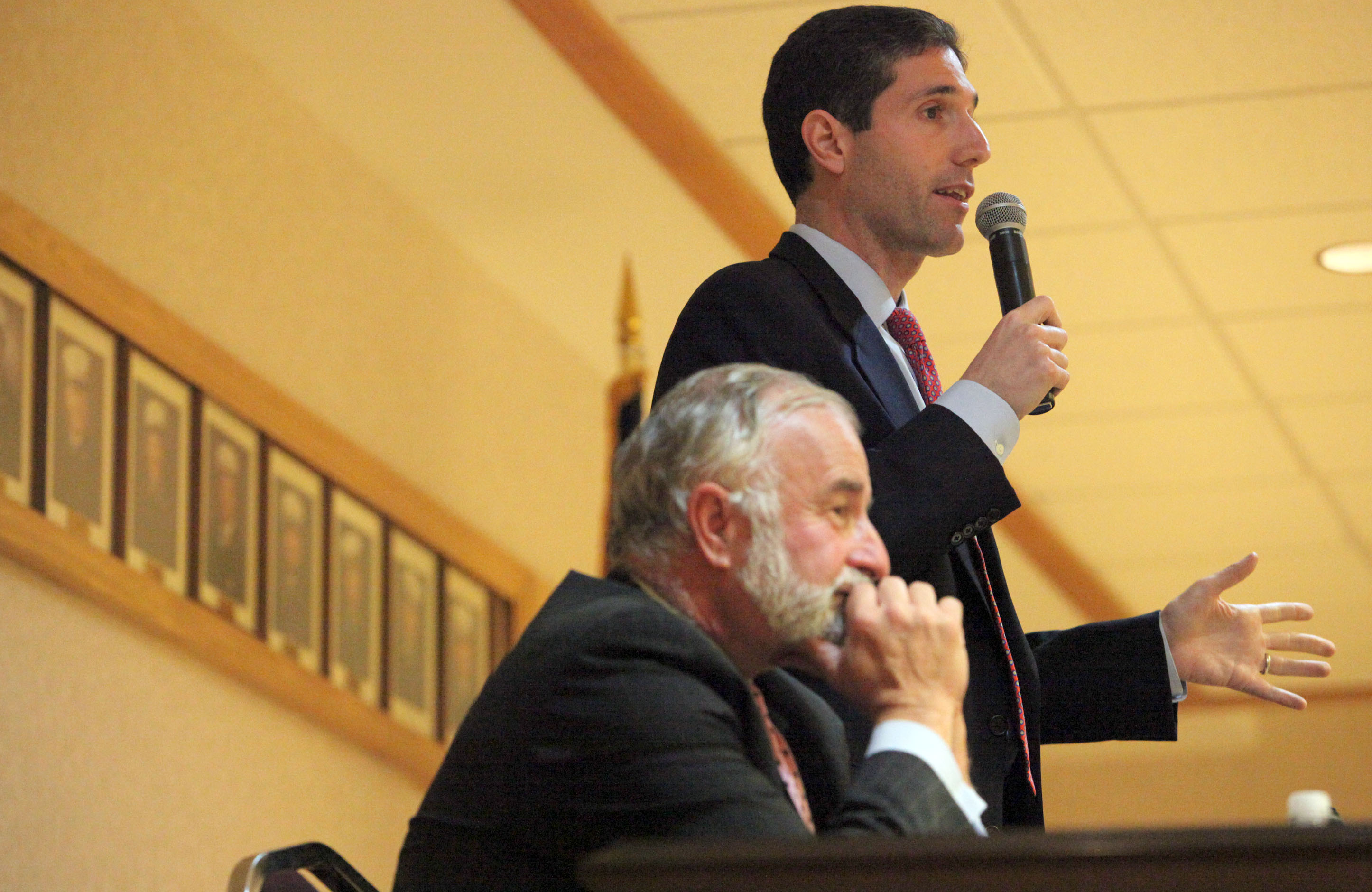

with Spencer Rumsey and Christopher Twarowski
As was her typical routine when cleaning the restrooms, Sherry Alfano, a barista at a Starbucks in Great Neck, locked the ladies room door behind her while she worked. An incessant barrage of knocking one evening last year, however, prompted the slender single parent to crack it open ever so slightly. As quickly as she did, a male patron forced her backwards and up against an interior wall.
“I could take you right now,” the intruder told her, exposing himself and forcing his tongue into her mouth. “Do you want it?”
Then, he said: “I’m going to find out where you live and kill you and your family.”
Alfano pushed away the man—a close friend of the store’s management team and a regular patron—screaming as he fled the room. She locked the door again and remained there, crying and shaking for about half an hour.
It was not the first time Alfano had resisted sexual advances and physical aggression from the intruder, Keith [not his real name]. The imposing, roughly 6-foot-4 customer frequently made sexual comments and obscene gestures to her at work. He’d ask her out on dates. He’d invite her back to his apartment. He’d request she participate in threesomes with himself and one of her supervisors. Twice he had groped her breasts. On another occasion, while she cleaned the condiment stand, he approached Alfano from behind, and while fully aroused, pressed his body into hers, groped her buttocks and attempted to touch her vagina. Alfano summoned the police to the store following another horrifying episode, in which Keith again threatened her and her family’s lives.
Alfano reported each of these instances to her supervisors, including those from Starbucks’ Partner Resources—the department responsible for investigating workplace complaints lodged to its national complaint center by employees—to no avail. Instead, she was told “he’s harmless” and to “let it roll off your back.”
“Well, you can’t blame the guy for doing what he did,” explained her district manager during a meeting intended to address her numerous complaints. “You’re too sexy. It’s your fault for being too sexy.”
The above allegations, and other similarly disturbing charges, pack a million-dollar lawsuit Alfano recently filed in New York State Supreme Court against Starbucks Corp., her managers, supervisors and Keith, following nearly a year of torment at the location. In addition to sexual harassment, the complaint asserts battery and assault. When Alfano complained, it charges, she was retaliated against. Ultimately, she was fired.
A Starbucks Coffee Company spokesperson responded to Press requests for comment about the claims with a generic disclaimer: “We don’t comment on pending litigation. However, we do strive to create the best possible workplace environment for our partners. To help accomplish this, our workplace policies strictly prohibit harassment of any kind.”
Alfano is not alone. Her complaints are nothing new. Sexual discrimination in the workforce, particularly against women, has been an unfortunate reality since the dawn of time. Even today, a woman still earns considerably less in comparison to her male counterpart, according to Marcia Pappas, president of the New York chapter of the National Organization for Women (NOW)—78 cents to every male dollar. Yes, the so-called “glass ceiling” is very much alive and well. Sexual discrimination in the workplace has gained heightened publicity lately, however, due to several high-profile cases sensationalized through the national media: Debrahlee Lorenzana, the attractive banker allegedly fired by Citibank for being “too hot;” clothier American Apparel, whose employment policies have repeatedly come under fire for being based on attractiveness; Ines Sainz, the television reporter who complained that members of the New York Jets harassed her during a locker-room interview.
The issue of sexiness at work has also made it to Capitol Hill as of late, thanks to a gaffe by Senate Majority Leader Harry Reid—who made recent headlines by referring to New York’s junior senator, Kirsten Gillibrand, as “the hottest member” of the Senate.
As Alfano’s plight demonstrates, underscored by experts, analysts and documented case studies, attractiveness is a double-edged sword for job applicants and employees: It may help them get hired, but in the end, it may also lead to their firing.
In the courtroom, however, such a defense simply doesn’t hold water, says Manhattan-based attorney Janice Goodman, who specializes in employment discrimination law and has won several high-profile cases on Long Island.
“It’s a poor excuse,” she says. “They’re not even saying she was provocatively dressed, all they’re saying [is] she was too pretty. Even provocative dress in most cases would not be accepted as a defense.”
“Beauty should not be an occupational hazard,” adds Pappas. “Women need to work. In this economy we need to have everyone working to contribute to the household. Women should not be fearful and worrying that they’re too beautiful.”
THE BEAUTY BIAS
It could take a good two years before Alfano’s case goes to trial, explains her attorney Michael Borrelli, of Carle Place-based Borrelli & Associates, PLLC, which specializes in employment law, employment discrimination and harassment.
Yet for Alfano, who was once a rising star employee at the company—having won numerous customer-service awards for her performance—each day is a painful reminder of the terrifying encounters.
“I will never forget what happened to me,” she tells the Press, tears welling up in her eyes, her voice trembling.
“He forced himself into the bathroom and pressed me up against the wall and stuck his tongue in my mouth,” she recalls. “I was totally shocked. It was sort of like The Twilight Zone going on. I was like, ‘Is this really happening?’”




